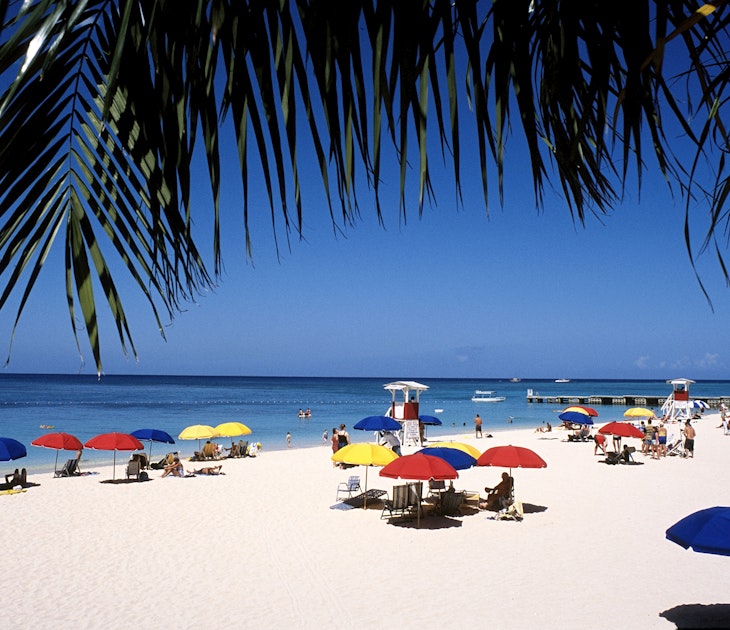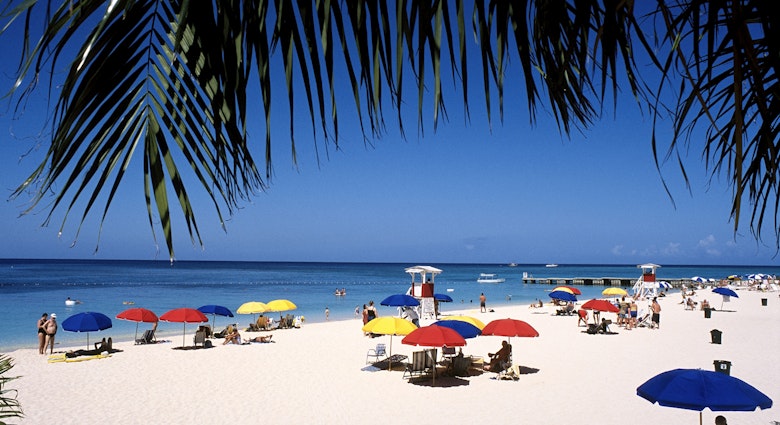Breathtaking beaches, exhilarating nightlife and bountiful natural beauty await in Aruba. This idyllic island outpost is a highlight of the Caribbean – a dramatic landscape of cacti, volcanic rock and divi-divi trees that beckons to be explored.
There’s a reason Aruba is a bucket-list destination for travelers. The island is a playground for water sports such as kite surfing and scuba diving, and terrestrial adventures such as hiking and horseback riding. Its hub city, Oranjestad, has strong Spanish, Dutch and indigenous influences, best discovered in the city's many restaurants, pubs and museums.
But how easy is it to enter the country? That depends on your passport. Here's everything you need to know about visas for Aruba.
Who needs a visa for Aruba?
Aruba’s generous visa exemption scheme means that many travelers can visit the island without a visa. However, travelers who do need a visa are in for some extra legwork.
Aruba is part of the Caribbean short-stay visa scheme, which allows entry to numerous islands in the region for up to 90 days. These multi-island, multi-entry visas are a convenient solution for those island-hopping around the southern Caribbean.
To obtain a Caribbean visa, visitors to Aruba must apply in person at either an Aruban embassy or an embassy or consulate of the Netherlands. The Kingdom of the Netherlands operates a convenient online portal with full details of the rules and regulations.
The list of nationalities who require a visa for Aruba is extensive. It includes residents of Afghanistan, Belize, Cambodia, China, Egypt, Fiji, Philippines, Laos, Kuwait, Iraq, Iran, Myanmar, Qatar, Uganda, Saudi Arabia, South Africa, Tanzania, Thailand, Venezuela and Vietnam.

Who can travel to Aruba without a visa?
Travelers from the United States, Canada, United Kingdom, Ireland and the 26 members of the Schengen Area (which includes most countries in the European Union) do not need a visa to enter Aruba for a stay of up to 30 days.
In addition, nationals from Bolivia, China, Cuba, Dominican Republic, Haiti, India, Jamaica and Peru are granted visa-free entry to Aruba if they have a valid, multi-entry visa for the United States, Canada, the United Kingdom, Ireland or a nation in the Schengen Area.
To enter Aruba visa-free, you'll need a passport valid for the duration of your trip, a ticket for travel out of Aruba at the end of your stay and proof of a booking for accommodation and sufficient funds to cover your stay (though this is not always checked).
Children younger than 12 do not need a visa if they are traveling with a parent or guardian. When you come to leave Aruba, the island offers customs preclearance for US travelers, which means that passengers returning to the US can clear customs on the island, skipping the long lines at mainland airports.
Special categories for visa-free travel
Some holders of specialized passports are also allowed to enter Aruba without a visa. Diplomatic passport holders from Bolivia, Chad, Indonesia, Jamaica, Malawi, Morocco, Pakistan, Peru, Russia, Senegal, Serbia, Thailand, Ukraine, Tunisia and Turkey do not need a visa. Service passport holders from Bolivia, Indonesia, Jamaica, Malawi, Morocco, Peru, Thailand, Tunisia and Turkey are also exempt.
Holders of laissez-passer documents issued by the World Bank, International Monetary Fund, the United Nations or any of its agencies are exempt too, as are crew members of vessels or aircraft mooring or landing on the island.
Aruba also has the One Happy Workation program for digital nomads from the US (run in partnership with local resorts and hotels) which allows a 90-day stay. However, this does not allow you to work for any companies based in Aruba.

Transit travelers
Travelers spending 24 hours or less on the island can enter Aruba without a visa regardless of their country of origin. This includes cruise ship passengers disembarking on the island as part of their voyage, as well as airline passengers transmitting to another country (or a neighboring Caribbean island) within one day.
How to extend your stay in Aruba
Dutch nationals are legally permitted to stay up to 180 days in Aruba. If you are lucky enough to own a house, a timeshare or an apartment on the island, or are staying on a yacht more than 45-feet long, you can also stay for up to 180 days.
Otherwise, tourists can extend the initial 30-day stay up to a maximum of 180 days by applying for an extension at the Department of Integration and Management of Foreign Nationals in Oranjestad.
Aruba's vaccination requirements
Travelers from areas where yellow fever is endemic, including most of Central America, Latin America and Africa, will need to show a yellow fever vaccination certificate on arrival.
Check the latest information on COVID-19 requirements and guidelines before you travel. The Visit Aruba website publishes regularly updated details of the latest pandemic requirements on the island.
You might also like:
Best things to do in Aruba from skydiving to off-roading
When is the best time to go to Aruba
The top 7 beaches in Aruba












